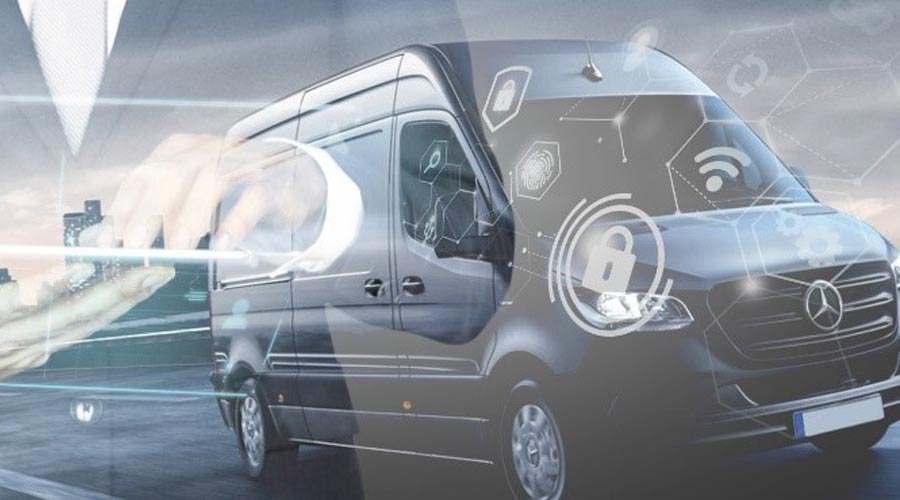Welders - UNI EN ISO 9606
Welding Operators - UNI EN ISO 14732
In today's working environment, welding is increasingly becoming a specialised profession. There is an increasing demand for welders who are in possession of a special "licence", issued by one of the authorised certifying bodies, according to the UNI EN ISO 9606 standard, which can enrich their curriculum and open the way to new professional opportunities. The certified welder will be able to interpret the technical documentation and procedures, prepare the pieces to be welded and the necessary tools, knowing the rules and risks involved in his activity.
Welding operations can be carried out either manually or with the help of machine tools/welding robots: in this case the welder is called "welding operator" and must be able to use the equipment and set the parameters for carrying out the welding.
This type of skills certification guarantees the correct management of personnel and construction processes in special processes and adds technical value to the finished product.
 Download the Code of Ethics for professional figures certified by Apave Italia CPM
Download the Code of Ethics for professional figures certified by Apave Italia CPM
 Download the Apave italia CPM regulations for the certification of welders and welding operators
Download the Apave italia CPM regulations for the certification of welders and welding operators
Non Destructive Testing (NDP) Personnel
UNI EN ISO 9712
Non-destructive tests (NDE) are a set of checks aimed at investigating the possible presence of defects in a part without having to destroy all or part of it, making it no longer usable. The certification includes 3 levels of competence defined according to activities and tasks:
- Level 1: can perform investigations and record imperfections
- Level 2: can perform investigations, record imperfections and report findings
- Level 3: can perform investigations, record imperfections, report findings and draft and validate control procedures
Through a training process that ends with an examination, it is possible to obtain certification for the following control methods:
- Infrared thermography (TT)
- Leak detection (LT)
- Magnetic particles (MT)
- Liquid penetrant (PT)
- Radiography (RT)
- Strain gauge (ST)
- Ultrasound (UT)
- Visual (VT)
 Download the Code of Ethics for professionals certified by Apave Italia CPM
Download the Code of Ethics for professionals certified by Apave Italia CPM
 Download the Apave Italia CPM Regulations for the certification of non-destructive testing personnel
Download the Apave Italia CPM Regulations for the certification of non-destructive testing personnel
F-Gas


The methods of implementation of Regulation (EU) 517/2014 and its implementing regulations are governed by Presidential Decree 146/2018, which defines the obligation of certification to all companies intending to carry out activities of installation, repair, maintenance, servicing or dismantling of fixed refrigeration, air conditioning, fixed heat pump and fire protection equipment containing fluorinated greenhouse gases.
Apave Certification Italia was among the first bodies to be accredited by Accredia and recognised by the Ministry of the Environment as competent to carry out this certification activity according to EU Regulation 2015/2067 and EC Regulation 304/2008 and is a leader in Italy in the certification of FGAS companies with over 13500 certificates issued.
With the application of Regulations (EU) 2015/2067, (EC) 304/2008, (EU) 2015/2066 and (EC) 306/2008 to ensure compliance with current legislation, it is necessary to:
- Qualify companies and personnel working on applications/equipment using fluorinated greenhouse gases
- Demonstrate their qualification to purchase fluorinated gases
Operators on post-meter Gas Systems
UNI 11554
The recipients of certification in accordance with the UNI 11554 standard and UNI/PdR 11:2014 practice are those who operate on civil combustible gas systems of the 1st, 2nd and 3rd family according to UNI EN 437, supplied by distribution networks, i.e. who
- Design, install, remove, inspect, test or verify, commission and maintain gas-fired systems in a safe state of operation
- Select, install, remove, test or verify, commission and maintain gas appliances and their components
There are three different specialist profiles:
- Technical manager (Profile A) - person in charge of planning the work, coordinating installation and/or maintenance activities, testing and verification of gas installations
- Installer (Profile B) - a technician in possession of the requirements laid down by current legislation, who carries out or is appointed to carry out installation, extension or modification operations
- Maintenance technician (Profile C) - a technician who meets the requirements laid down in the legislation in force, who performs or is appointed to perform control and maintenance operations
Two levels are also defined for each of the specialist profiles, depending on the heat input of the equipment served and the supply pressure:
- Level 1 - installations serving buildings for civil use for the use of gas supplied to appliances with an individual nominal heat input greater than 35 kW and supplied at a pressure not exceeding 0.5 bar
- Level 2 - domestic and similar systems for the use of combustible gases supplied to appliances with an individual nominal heat input not exceeding 35 kW
 Download the Code of Ethics for professional figures certified by Apave Italia CPM
Download the Code of Ethics for professional figures certified by Apave Italia CPM
 Download the Apave Italia CPM Regulation for the certification of professional figures working on civil gas installations supplied by distribution networks
Download the Apave Italia CPM Regulation for the certification of professional figures working on civil gas installations supplied by distribution networksRefrigeration and Heat Pumps
UNI EN 13313
The refrigerator technician is the professional who deals with the construction and installation of industrial and commercial refrigeration systems and civil and industrial air conditioning, carrying out the design, assembly of components and commissioning/installation. The refrigeration technician also carries out the repair and maintenance of these systems. Specifically, there are two profiles:
- Refrigeration technician: the refrigeration technician sizes, builds, installs and maintains refrigeration systems
- Refrigeration technician: the refrigeration technician installs and maintains refrigeration systems and heat pumps
 Download the Code of Ethics for professional figures certified by Apave Italia CPM
Download the Code of Ethics for professional figures certified by Apave Italia CPM
Energy Management Expert (EGE)
UNI 11339
The Energy Management Expert is the professional possessing the knowledge, skills and competence necessary to:
- Promote and manage the rational and sustainable use of energy by identifying policies, interventions, procedures and anything else necessary to implement actions to improve energy performance in organisations, evaluating and reporting the results, including through the deployment of Energy Management Systems in compliance with UNI CEI ISO 50001.
- Carrying out energy diagnoses in compliance with UNI CEI EN 16247 parts 1-4 being compliant with UNI CEI EN 16247-5 combining knowledge in the energy and environmental field with management, economic-financial and communication skills.
The EGE, in addition to having the knowledge and skills set out in points 5.2 and 5.3 of standard UNI CEI 11339:2023, must possess the professional skills set out in point 4.2 of standard UNI CEI EN 16247-5:2015 that are reflected in the corresponding skills in point 5.3 below:
- ability to observe, measure, analyse and summarise: skills S01, S04, S05, 506
- ability to articulate concepts and ideas: skills S03, S13, S15
- ability to adapt to situations encountered: skills S11, S12, S16
- ability to formulate concrete proposals for improvement: skills S09, S12
- ability in project management and methodology: skills S02, S04, S07
The certification scheme provides two professional profiles for this figure:
- Civil sector: skills mainly focused on the energy performance of the civil and tertiary sectors (the latter e.g. hospitals and nursing homes, schools, offices, shops, sports centres, spas, etc.).
- Industrial sector: competences focused mainly on process energy performance in the industrial and manufacturing sectors.
 Download the Code of Ethics for professionals certified by Apave Italia CPM
Download the Code of Ethics for professionals certified by Apave Italia CPM
 Download the Apave Italia CPM Rules for the certification of experts in energy management (EGE)
Download the Apave Italia CPM Rules for the certification of experts in energy management (EGE)
Expert in Road Accident Reconstruction and Analysis
UNI 11294
The road accident reconstructionist is an expert who, on the basis of his own theoretical knowledge, of a multi-disciplinary nature, and his own practical experience in the sector, acquires all the necessary data and analyses and reconstructs the mechanics and causes of road accidents, both with reference to the vehicles, the circulation and the road, and with reference to the behaviour of those involved. The activity of the technician therefore plays a very delicate and often decisive role, since the outcome of legal proceedings often depends on the reconstruction carried out, with immediate criminal, civil and economic consequences. In addition to managing relations with the client and knowing how to conduct expert operations independently, the activities that the reconstruction technician may find himself performing are :
- Relations with the court (lawyers and/or magistrates)
- Analysis of the reports of the Judicial Authorities
- Analysis of the claim
- Analysis of mechanical failures
- Analysis of stresses on occupants, injuries and human factors
 Download the Code of Ethics for professional figures certified by Apave Italia CPM
Download the Code of Ethics for professional figures certified by Apave Italia CPM
Professional Figures for Innovation
UNI 11814
In recent years, all organisations have been affected, sometimes forced, by innovation, including digital innovation, which has made possible new methodological approaches in the management of core business processes.
The key professional figures of the management systems of Innovation have long been the focus of interest, study and certification activities of Apave Italia CPM.
In fact, from the need of several interested parties and drawing on the experience gained in the Working Groups of the national voluntary technical standardization, since 2020 is active the first certification scheme dedicated to the skills of professional profiles in the field of Innovation.
In May 2021 the publication of the UNI 11814:2021 standard has sanctioned the opportunity to have a single reference framework for the Innovation professions and consequently Apave Italia CPM proposes the updated scheme based on the new standard.
The Certification Rules are available at the link below for all:
- Innovation Manager
- Innovation Specialist
- Innovation Technician
We invite you to view the requirements to be able to participate in the next certification exam session, remotely.
 Download the Code of Ethics for professional figures certified by Apave Italia CPM
Download the Code of Ethics for professional figures certified by Apave Italia CPM
Installers of External Thermal Insulation Composite Systems (ETICS)
UNI 11716:2018
Recipients of certification in accordance with UNI 11716:2018 "Non-regulated professional activities - Professional figures - Requirements for knowledge, skills and competence" provides two levels of the professional figure of "thermal insulation installer" are those who carry out the installation of external thermal insulation composite systems (ETICS).
There are two different profiles:
The basic installer of Thermal Coat Insulation Systems is the one who has the task:
- Verify the suitability of materials and equipment necessary for installation
- Checking the application methods and the state of the site
- Manage and organise his workstation
- Prepare the necessary support and materials
- Install the thermal insulation system
The team leader installer of Thermal Insulation Systems is the one who has all the tasks of the basic installer and to:
- Analyse the project in relation to the installation of thermal insulation systems
- define the application methods
- plan the work in relation to climatic and environmental conditions
- verify the preparation of the substrate according to the project specifications
- verify the thermal insulation system
- prepare and deliver the documents necessary for the completion of the work
Professional Figures
UNI 11337-7:2018
Even the AEC sector, although lagging behind other sectors, is rapidly evolving towards digital. The "revolution", so called because of the upheaval of "traditions" that it is operating, began with the advent of the BIM methodology. Design, construction and management of buildings, structures and infrastructures are radically changing their approach, method and tools. This is due both to the effect of digital technology, which is advancing and affecting all sectors, and to the emergence of the new methodological approach better known as Building Information Modeling. Information is at the centre of the process and the new technologies make it possible to manage huge quantities of data and reports in real time, improving the quality of works, reducing times and therefore costs.
The UNI 11337-7 standard, which is a source of pride for everyone, places Italy among the first countries in the world to be structured in this area, defining the entire process including the knowledge, skill and competence requirements of the four key professional figures in the BIM process:
- The digitised process manager, BIM Manager, who is responsible for the project both within his own organisation and with suppliers and clients
- The manager of the data sharing environment, CDE Manager
- The information flow coordinator, BIM Coordinator, who is in charge of coordinating and managing the team's resources, reports to the BIM Manager and supports him in the preparation of procedures
- The advanced information management and modelling operator, BIM Specialist, who is familiar with the software, is able to develop a BIM project and is therefore able to transform ideas into BIM
 Download the Code of Ethics for professionals certified by Apave Italia CPM (Italian version)
Download the Code of Ethics for professionals certified by Apave Italia CPM (Italian version)
 Download the Apave Italia CPM Rules for the certification of professionals involved in management and information modelling (BIM) (Italian version)
Download the Apave Italia CPM Rules for the certification of professionals involved in management and information modelling (BIM) (Italian version)
Window and Door Fitter
UNI 11673-2:2019
Recipients of certification in accordance with UNI 11673-2:2019 "Installation of windows and doors - Part 2 Requirements of knowledge, skills and competence of the installer of windows and doors" which provides three levels of the professional figure are those who perform the installation of manually operated or motorized windows and doors.
There are three different profiles:
The Junior installer is the one who has the task:
- Assisting with installation operations in accordance with the instructions and instructions obtained
- Clearing and cleaning the premises of packaging and waste according to the provisions and instructions obtained
- Prepare the work equipment and machinery required for the various stages of the activity on the basis of the provisions and instructions received and the expected result
- Prepare the framework on which the laying will be carried out on the basis of the provisions and instructions received
- Cooperate in basic and recurrent installation operations
- The Senior installer is the one who has all the tasks of the basic installer and to:
- Verify the particularities of the installation context to the specifications of the installation project or the installation instructions
- Checking that windows and doors, add-ons and accessories, materials and complementary products meet the specifications of the installation project or the installation instructions and are ready for use
- Prepare the installation space or check it if it has already been prepared by others
- Carry out the individual installation steps
- Checking the functional suitability of the windows and doors and any additional components/accessories laid
- Remove and clean the packaging and waste materials from the premises and take them to the landfill
- Clean the windows and doors and any additional components/accessories at the end of installation, if contractually required
- Provide for the custody, guardianship and conservation of the windows and doors and any additional components/accessories installed on site until the delivery of the works, if provided for in the contract
- Deliver the prescribed documentation to the end user
- Report any anomalies and non-conformities with regard to the finished work and propose procedures, methods and techniques, behaviour and corrective solutions
- If authorised, implement procedures, methods and techniques, behaviours and solutions to correct any anomalies and discrepancies in the finished work
- The Foreman installer is the one who has all the tasks of the basic installer and to:
- Liaise with the Client, the Designer and the Works Manager on the operational solutions to be implemented, taking into account the project specifications and the site context and the final checks of the works (testing)
- Coordinating installation teams
 Download the Code of Ethics for Technicians who install windows and doors
Download the Code of Ethics for Technicians who install windows and doors
Professional figures
for the Circular Economy


Organisations are currently affected by the 'green' revolution that has shifted the management of business processes towards greater sustainability and concern for the protection of natural heritage.
The Circular Economy sector has a significant economic impact both in terms of production and personnel employed. The 2030 Agenda for Sustainable Development puts the Circular Economy at the forefront and thus states have issued legislation to implement and/or regulate it.
The European Commission has also issued a plan of action and measures covering the entire life cycle of products: from design, sourcing, production and consumption to waste management and the market for secondary raw materials. The hoped-for effect is that all member countries will achieve recycling of at least 70 per cent of municipal waste and 80 per cent of packaging waste, without landfilling biodegradable and recyclable waste.
The target date for entry into force is 2030, so as to consolidate the waste management and recycling process and to have time to raise public awareness of the change in approach and thus develop new professional skills useful for eco-sustainable management.
The competence of managerial and operational figures is fundamental for the effective development of Circular Economy processes and APAVE Italia CPM has developed the certification scheme taking into account the main voluntary standards and current EU and national legislation.
In the APAVE scheme the requirements for the certification of the 2 identified key figures are indicated:
- Circular Economy Advisor
- Circular Economy Technician
Circular Economy Advisor is the Person operating at a political-strategic level of the organisation with the responsibility for defining the company's strategy on Circular Economy, according to the applicable Laws and in agreement with the Management.
He/she also advises on the effective integration of business processes based on the ISO model (ISO 14001, for example), in order to increase their performance on circularity.
Circular Economy Technician is the person who supports the implementation of the strategy indicated by the Advisor and interfaces with the internal supply chain. CET is the expert person who carries out mainly technical activities to promote the circular economy in the organisation through the use of the best equipment in compliance with legislative, regulatory, technical and safety requirements.
Logistic advisor of the industrial and commercial
vehicles sector CIV M.L.A


In recent years, the field of commercial and industrial vehicles (CIV) has undergone an evolution, including a digital one, which has made possible new methodological approaches in the management of organizations' core business processes. From a need arising from the Interested Party BIG Group of Rome, APAVE Italia CPM developed this certification scheme, which describes the professional skills of the new figure of the Mobility & Logistic Advisor of the CIV sector.
CIV Logistic Advisor (M.L.A.) is a Professional in the commercial and industrial vehicles (CIV) sector who carries out the promotion and/or sale of goods and services to facilitate the purchase and sale of fleets and related branded technological equipment. It also provides consultancy services on how to innovate the fleet monitoring process by integrating it into the customer's business management system, in order to increase its performance. He can carry out the activity described in the document both as an internal and external member of the company staff.
Specific training is essential in order to acquire the knowledge necessary to perform the tasks envisaged for the figure and must include theoretical and practical parts divided into the following areas:
- Organizational area / technical standardization
- Technological area
- Environmental context area of the CIV sector
- National and international legislation area applicable to the CIV sector
- Practical area including:
- a project work
- on the job training
- an operational internship
The program of the introductory course is available on the website www.bigroup.pro in the Smart Business School section
 Download the Code of Ethics for professionals certified by Apave Italia CPM (Italian version)
Download the Code of Ethics for professionals certified by Apave Italia CPM (Italian version)
Our
Strengths

INTEGRITY AND INDEPENDENCE

COMPETENCE AND RESPONSIBILITY

